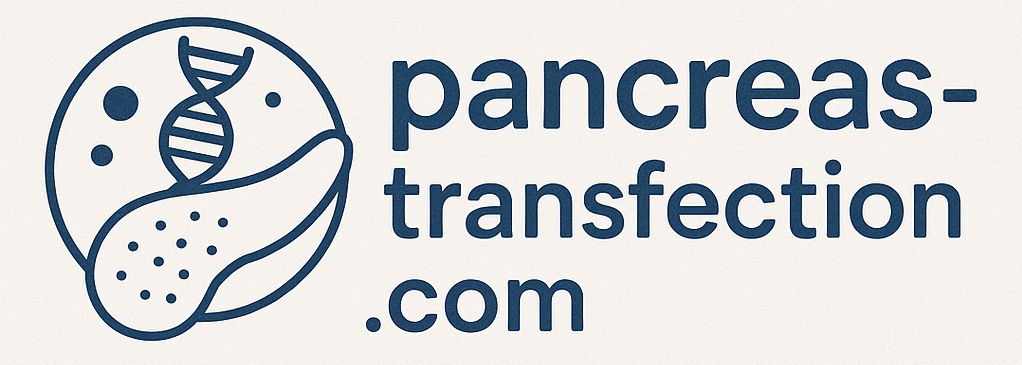
Introduction to AsPC-1 Cells
AsPC-1 is a human pancreatic adenocarcinoma cell line derived from ascites of a 62-year-old Caucasian female. These cells are characterized by their aggressive growth profile, epithelial morphology, and their utility in modeling advanced pancreatic cancer. AsPC-1 cells are adherent but show poor contact inhibition and exhibit high metastatic potential, making them an ideal model for studying invasion, metastasis, epithelial-mesenchymal transition (EMT), and drug resistance in pancreatic ductal adenocarcinoma (PDAC). Due to their robust growth in vitro and compatibility with xenograft models, AsPC-1 cells are widely used in cancer research, particularly in evaluating chemotherapeutic efficacy and gene function in pancreatic malignancies.
Importance of Transfection in AsPC-1 Cells
Transfection of AsPC-1 cells is essential for advancing molecular studies related to pancreatic cancer progression, therapeutic resistance, and gene regulatory mechanisms. Researchers use transfection to introduce plasmid DNA for overexpression studies, siRNA/shRNA for gene silencing, and CRISPR/Cas9 for gene editing. However, AsPC-1 cells present significant challenges for transfection due to their dense membrane structure, low endocytic activity, and high baseline levels of cellular stress, which can lead to low transfection efficiency and high cytotoxicity when using conventional reagents.
Altogen AsPC-1 Transfection Reagent Overview
The Altogen AsPC-1 Transfection Reagent was specifically formulated to address the difficulties of nucleic acid delivery in pancreatic adenocarcinoma cells. This advanced reagent is optimized for high transfection efficiency in the presence of serum, allowing gene delivery without compromising cell viability. The proprietary formulation includes a lipid-polymer blend that enhances cellular uptake and promotes endosomal escape, while minimizing toxicity. The reagent supports transfection of siRNA, miRNA, plasmid DNA, mRNA, and CRISPR/Cas9 constructs.
Extensive validation has demonstrated transfection efficiencies of up to 85% for plasmid DNA and 70-80% for siRNA in AsPC-1 cells, with cell viability consistently maintained above 80%. The reagent is compatible with both adherent and suspension cultures of AsPC-1 and has been successfully used in applications such as gene knockdown of KRAS, overexpression of tumor suppressors like TP53, and introduction of luciferase-based reporter systems.
Transfection Protocol and Optimization
Transfection using the Altogen reagent follows a simple and reproducible protocol. AsPC-1 cells should be seeded at 40-60% confluence and allowed to adhere overnight. Nucleic acid and reagent complexes are formed by mixing at room temperature for 20-30 minutes in serum-free medium. These complexes are then added directly to cells cultured in complete growth medium with 10% serum. There is no need to change medium after transfection. Gene expression can typically be detected within 24-48 hours, depending on the assay.
Optimization tips include using high-quality, endotoxin-free nucleic acids, adjusting DNA-to-reagent ratios based on the desired application, and maintaining cells under optimal growth conditions. The reagent is provided sterile-filtered, RNase/DNase-free, and stable for 12 months when stored at 4°C. Troubleshooting guidelines are included for resolving issues such as low gene expression, cytotoxicity, or inconsistent results.
Product Availability and Competitive Advantages
The Altogen AsPC-1 Transfection Reagent is available in 0.5 mL, 1.5 mL, and 8.0 mL sizes to accommodate various scales of experimentation, from small-scale gene function studies to large-scale high-throughput screening. It significantly outperforms standard reagents such as PEI, Lipofectamine, and calcium phosphate, which often fail to transfect AsPC-1 cells efficiently or induce high levels of apoptosis. Altogen’s formulation is designed specifically for difficult-to-transfect cell lines like AsPC-1, delivering reliable performance even in challenging experimental conditions.
Research Applications
Common applications of this reagent include silencing of oncogenes such as KRAS, MYC, and BCL-XL; CRISPR/Cas9-mediated gene editing of drug resistance markers; delivery of luciferase and GFP reporter constructs for live-cell imaging; and co-transfection of plasmids and siRNA for pathway analysis. The reagent is also used in personalized medicine research to test the effects of genetic manipulation in patient-derived AsPC-1 xenografts or organoid models.
Request the Altogen AsPC-1 Transfection Reagent
To achieve high-efficiency gene delivery with minimal toxicity in AsPC-1 cells, request the Altogen AsPC-1 Transfection Reagent today. Visit the official product page to learn more and place an order.
